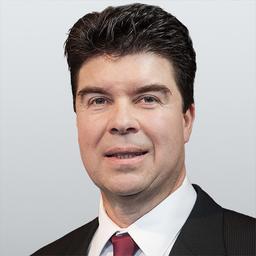Silicon Valley is known for technological advancements and innovation. While these have had positive effects, a tech pioneer we spoke with said they have also come at the cost of family values.
“I see absence of family values in the minds of so many of my friends who are in the high tech [industry], who don’t care a bit about even having a family,” Hussein Al-Omari, a professor and IT/AI expert, said in a recent episode of EpochTV’s “Bay Area Innovators.”
He noted that four of his colleagues got divorced and their families separated due to spending too much time at work.
For them, he said, “it was really a tradeoff between family and … innovation and industry.”
He added that he’s not here to criticize, but this is the reality of Silicon Valley; there is not much social or family life, as he sees it.
For him, family values are most important.
“I don’t want to go after money, just work, and ignore my social life and friends and family,” he said.
He believes technology has outpaced legislation, and social and ethical aspects of society haven’t been able to keep up either.
“You have engineers who don’t know sociology or psychology. … They’re deciding for the world how to live socially,” he said. “I believe all the social studies and all the psychology people should learn AI so they can come and contribute, not leave it for us engineers.”
Mr. Al-Omari grew up in a war zone in Umm Qais, Jordan, near the ruins of ancient Gadara. He had 12 siblings, and they dreamed of swimming in the lake of Galilee, which was about a half-hour walk away, he said. However, they couldn’t because it was occupied.
He said his town was pretty primitive with no electricity, but he still managed to be one of the top 10 high school students in his country, and he found his way out by studying engineering.
Through his hard work and achievements in math, he got a scholarship to Stanford, he said.
“I got my master’s and Ph.D., which really was a lot for somebody coming from a village where we made our own toys,” he said.
His first job in the industry was at LSI Logic (now known as Broadcom Inc.) in the early 1980s, he said.
He said that LSI Logic was an incubator where people came to grow, and some of his colleagues at the time were Moshe Gavrielov, former CEO of Xilinx (which was acquired by AMD); Brian Hala, former CEO of National Semiconductor; and Jensen Huang, CEO of Nvidia.
Additionally, one of his professors at Stanford was James Clark, founder of Netscape, he said.
He said it was really nice to watch a company grow, and it was where he built the first timing analyzer in the valley; but a balance among work, family, and social life was most important for Mr. Al-Omari.
He said he moved on to work for Canon, where he got his first patent, got into computer vision and image processing, and built optical character recognition.
“I could have made hundreds of millions and all that. I looked at my friends who did that. Really, they’re not happy. They lost wives or kids or things,” he said.
Instead, Mr. Al-Omari decided to quit his job and position in the tech industry and move his family back to Jordan to raise his children safely and make sure they had family values.
“My kids were going to good schools—no alcohol, no drugs, no sexuality, and all this stuff, and so they focused on studying,” he said.
After 14 years in Jordan, he moved his family back to California so his children could attend college. He had to start over in the tech industry, but he doesn’t regret it, he said.
In turn, his children thanked him for getting his family back to their roots, and they are even borrowing his style, he said.
It also brought him and his wife closer.
“We don’t want to be married to money or to career or to companies,” he said.
As a Muslim and Arab, Mr. Al-Omari believes community is very important. He called it social warmth, where you feel a bond and you know everybody in town.
While he was growing up, he learned to have a greater responsibility to his neighborhood in which everybody would help each other, he said. In that environment, he feared doing mischievous things because he would be reprimanded not only by his parents but by others in the community.
Now people are more separated, lacking heritage and the unwritten laws that govern people’s lives regarding social interaction, leading to a loss in social responsibility, he said.
He said it’s sad to see social life being challenged by technology and to see people no longer having the essence of family, so that after work they go home and feel lonely.
For Mr. Al-Omari, it’s the opposite, he said.
“I used to joke with my friends at work; I told them, ‘Look, my life starts after I leave work,’” he said.

















